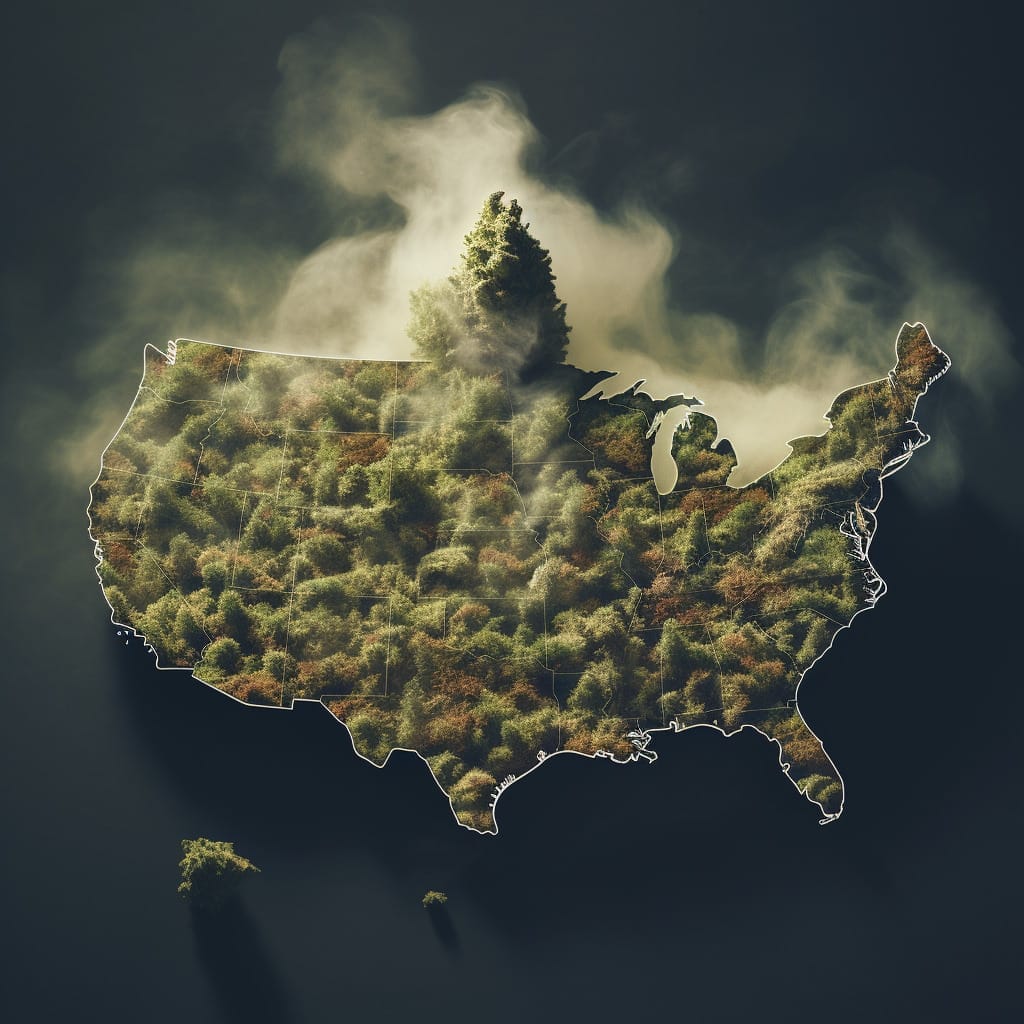This article discusses the current marijuana laws in each state, including the process of legalizing marijuana and where it is currently permitted. This guide provides information on medical marijuana, recreational marijuana, and marijuana laws. It’s worth reading because it will give you an understanding of the complex and evolving landscape of marijuana legislation in the U.S., and it will help you navigate the unique rules and regulations in every state.
The Evolution of Marijuana Laws in the U.S.
Significant shifts mark the history of marijuana laws in the U.S. For a long time, marijuana use was broadly illegal. California became the first state to legalize medical marijuana in 1996. This event paved the way for marijuana legalization in other states.
Many states have also legalized marijuana for medical and/or recreational use. Even though some states have legalized marijuana, it is still considered illegal at the federal level. This shows that marijuana laws are still a complicated and conflicting issue.
Which States Have Legalized Recreational Marijuana?
As of July 2023, 23 states and the District of Columbia have legalized recreational marijuana for adults. States like Colorado, the first to legalize recreational marijuana, and more recent states like New York and Connecticut. These states permit adults to use marijuana recreationally and have small amounts of it, usually up to one ounce.
However, the rules for recreational marijuana use can vary from state to state. For instance, while some states allow residents to grow up to six marijuana plants for personal use, others do not. Always check the specific marijuana laws by state to understand the regulations where you are.
Which States Have Legalized Medical Marijuana?
Medical marijuana laws are even more widespread. As of 2023, 36 states and the District of Columbia have legalized medical marijuana. Patients with specific qualifying conditions can use marijuana for treatment if they have a recommendation from a healthcare provider.
Similar to recreational laws, the specifics of medical marijuana laws can differ greatly by state. States have different rules when it comes to growing marijuana. Some allow patients to grow their own plants, while others only allow the purchase of marijuana products from licensed dispensaries.
Marijuana Use: Legal and Illegal Aspects
Even in states where marijuana is legal, there are still rules and restrictions. Using marijuana in public is usually not allowed, even in states where it’s legal for recreational or medical purposes. Additionally, driving under the influence of marijuana is illegal in all states.
In states where marijuana is illegal, some have made possession of small amounts of marijuana less severe, reducing or eliminating penalties. However, in these states, selling or growing marijuana, as well as possessing large amounts, remains a serious crime.
How Do States Legalize Marijuana?
The process of legalizing marijuana often involves extensive legislative efforts. Some states have legalized marijuana by voting and getting approval from the governor. In others, voters have been able to influence marijuana laws through ballot initiatives directly.
Despite these successes, attempts to legalize marijuana don’t always succeed on the first try. Changing marijuana laws can be a long and challenging process, with multiple attempts and significant time investment. This reflects the ongoing debate about whether marijuana should be legalized.
What’s the Situation in West Virginia?
West Virginia is a good example of a state with evolving marijuana laws. Medical marijuana was legalized in West Virginia in 2017, allowing patients with certain conditions to use marijuana for treatment. However, the state has yet to legalize recreational marijuana, showcasing the varied approach to marijuana laws by state.
Guide to Marijuana Businesses: Regulations and Opportunities
The legalization of marijuana has led to the growth of a new industry. This industry includes businesses such as dispensaries, cultivation facilities, and edible manufacturers. However, starting a marijuana business requires navigating a complex web of state and local regulations.
Marijuana businesses need licenses, permits, strict security measures, record-keeping, and location limitations. Despite these challenges, the marijuana industry presents significant opportunities for entrepreneurs.
Where Does Florida Stand in Marijuana Laws?
Florida is a southern state where medical marijuana is legal, but recreational marijuana is still illegal. Florida allows patients with conditions such as cancer, epilepsy, and HIV/AIDS to use medical marijuana. Despite numerous attempts, efforts to legalize recreational marijuana in Florida have so far been unsuccessful.
Massachusetts Marijuana Laws: A Case Study
Massachusetts provides an interesting case study in marijuana laws. The state legalized medical marijuana in 2012 and recreational marijuana in 2016. This makes it one of the states that have legalized both medical and recreational marijuana use. In Massachusetts, adults who are 21 years old or older can have up to one ounce of marijuana and grow up to six marijuana plants in their homes.
Colorado Marijuana Laws: Setting the Trend
Colorado is often looked to as a trendsetter in marijuana laws, as it was one of the first states to legalize both medical and recreational marijuana. Colorado marijuana laws allow adults 21 and over to possess up to one ounce of marijuana and grow up to six marijuana plants. The state’s approach to regulation has served as a model for many other states, and its marijuana industry has generated billions of dollars in revenue.
Conclusion
To summarize, here are the key points to remember:
- The U.S. has a complex patchwork of marijuana laws, with some states permitting medical marijuana, others allowing recreational use, and a few permitting both.
- Even where marijuana is legal, there are still rules and restrictions to follow. Public use is usually prohibited, and driving under the influence of marijuana is always illegal.
- The process of legalizing marijuana often involves extensive legislative efforts and sometimes involves direct votes by the people.
- The marijuana industry presents significant opportunities for entrepreneurs, but starting a marijuana business involves navigating a complex web of regulations.
- Despite progress at the state level, marijuana remains illegal at the federal level, highlighting the ongoing complexity and evolution of marijuana laws.
This guide to marijuana laws by state provides a broad overview, but always check your local laws to ensure you’re up-to-date with the latest regulations.













